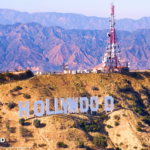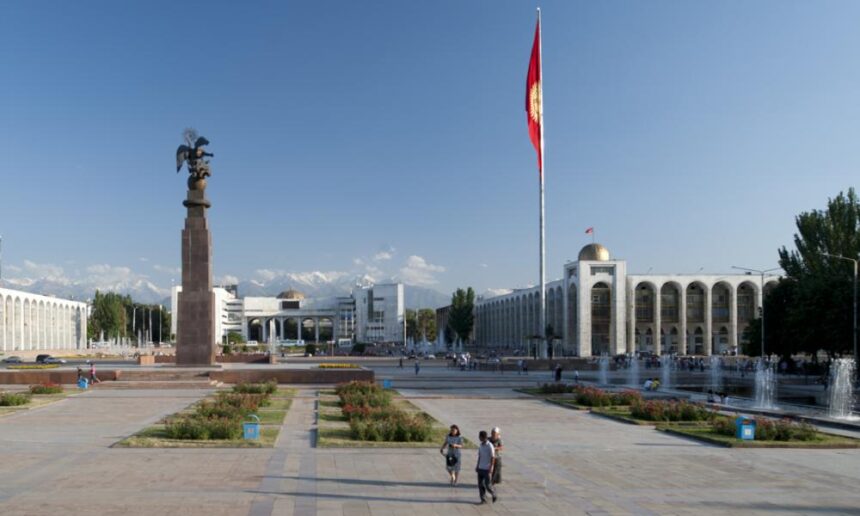I thought about where the country of Kyrgyzstan might be heading while I was waiting for my boarding call to Moscow from Bishkek at the Bishkek international airport, Manas.
A similar thought about Mongolia may come to a foreigner who visited Mongolia before they depart from Chingis Khaan airport in Ulaanbaatar. Intelligent friends, ordinary people that I met, and places I visited in Kyrgyzstan for the last few days led me to think that the history of our two countries during this difficult and responsible time might be similar in some ways, while different in others. However, solutions for the future of both may have similar formulas.
Similarities:
Ulaanbaatar and Bishkek international airports are alike in shape and size. This is typical of a small country with a small population and non standard services. An officer of the border inspection was accompanying his friend without queuing up and he was serving him like a guest in his home. When you arrive at these airports, dozens of men will come up to you all at the same time offering taxi service. Anyone who has a car can also be a taxi driver. High unemployment rates and low salaries are a well known calling card for a failed economy.
In Kyrgyzstan too, the state leaders have privatized all formerly state owned properties and have sold the former state owned manufacturing plants and factories to their acquaintances and partners for a cheap price. Soon the buildings will stand empty after the equipment is sent into scrap metal. In Kyrgyzstan, they do not produce anything except for some food supplies and import the rest from China, like we do. Nothing made by human hand is exported. In the summer, they accumulate water from rivers that run down the mountains in order to produce power in the winter; but this makes Uzbekistan, its neighbor, very unhappy because it blocks the irrigation of the Fergana valley cotton fields, and water for drinking. For many years, it has been a topic of hot debate between the two countries.
Additionally, radioactive wastes from the former Soviet uranium mines is washed down along with the rain water into Uzbekistan causing toxicity and death for thousands of its citizens.
President Bakiyev, (the leader after a 2005 coup d’état, during which the parliament palace was looted and the former president, Akayev was forced to escape), has given out all possible state properties to his relatives and the people of his own province. In the words of an influential politician, Bakiyev has accomplished in fifteen months what Akayev managed to plunder during fifteen years.
Similarly to its neighbors, Kyrgyzstan is ruled not by a state, but by a family. The fee from using one airport by the American military and two by the Russian military goes straight to the state budget. Only one company run by “the family” supplies the country’s gasoline, and only the same family controls the largest bank as well as communication companies and the media.
One fifth of the five million people go abroad, the majority to Russia, for simple jobs as guards and cleaners. They transfer money back home, which supports the economy of that country. In Mongolia, this figure reaches one tenth of our population and the majority of this money comes from Korea.
Differences:
10% of Kyrgyzstan’s population is Russian. Russian also is the official language of business and communication. The Kyrgyz are in the process of upgrading their own language to this level. The population is well educated in general. The main religion is Islam. Many government functions are done by trial and error as the country has little experience of sovereign governing skills. They try to imitate Russia and Kazakhstan, particularly their leaders.
As for Mongolians, we do not admire large countries and their big leaders because we have no tradition, habit or need to worship them. We have an independent way of thinking. Even though we do not protect sufficiently well, human rights, liberty and properties, we are relatively ahead in this matter compared to other Central Asian nations. We have a grand history of state, and a larger experience of governance.
At the present, we are not ruled by one family. Unfortunately there is no guarantee that this will not happen because one can expect anything from a government that is not fully transparent. In Kyrgyzstan, an opposition leader able to compete with the president and voice his disagreement with the leader gets (coincidentally) burnt to death in a car accident. One hopes that this will not happen in Mongolia.
The Future Formula:
As I thought about the differences and the similarities between these two countries, the future formula for both appeared to be the same.
The fundamentals of economic development and its driving force is a free market, not government. A nation prospers when the services and products of a competitive industry based on free competition reach the world market. Government should invest alone or in cooperation with the private sector in projects that cannot be developed by private sector alone (particularly infrastructure) in order to create conditions for development.
For that, the government should be small with wise spending and transparent operations. A government cannot do this by itself. It is accomplished only through the scrupulous monitoring by informed citizens who impact the voting process with knowledge, thereby subtly affecting the quality of governance.
Citizens that cannot make the government fair and transparent, however, slowly will start to believe not in themselves, but in some other outside power, and will look for solutions from that power, in both life and religion.







